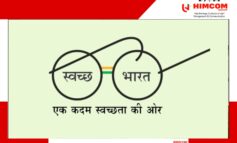Gardening is a fulfilling and rewarding activity that allows you to connect with nature, grow your own food, and create a beautiful green space. If you’re new to gardening, specifically growing your own vegetables, it can seem overwhelming at first. But fear not! In this beginner’s guide, we will provide you with essential tips and advice that will help you get started on your vegetable gardening journey.
- Start with the Right Location:
Choosing the right location for your vegetable garden is crucial. Most vegetables thrive in a sunny spot with at least six to eight hours of direct sunlight each day. Look for a location that is not shaded by trees or buildings. If space is limited, you can also consider container gardening or growing vegetables in raised beds. - Prepare the Soil:
Good soil is the foundation for a successful vegetable garden. Before planting, it’s important to prepare the soil by removing any weeds, rocks, or debris. Loosen the soil with a garden fork or tiller and add compost or well-rotted manure to enrich it with nutrients. This will provide your vegetables with the necessary nutrients for healthy growth. - Choose the Right Vegetables:
Selecting the right vegetables to grow in your garden is key. As a beginner, it’s best to start with easy-to-grow vegetables such as tomatoes, lettuce, radishes, carrots, and zucchini. Research the specific growing requirements of each vegetable, including planting depth, spacing, and water needs, to ensure proper care. - Planting and Watering:
Follow the recommended spacing guidelines for each vegetable when planting. Pay attention to the depth at which each seed or transplant should be planted, as it can vary. Water the garden consistently, providing enough moisture without overwatering. Keep in mind that most vegetables prefer evenly moist soil, but not soggy conditions. - Nurture and Maintain:
Regular maintenance of your vegetable garden is essential. Weed regularly to prevent competition for nutrients and water. Mulching around plants can help suppress weeds, retain moisture, and regulate soil temperature. Monitor for pests and diseases, and take appropriate measures to prevent or treat them, such as using organic pest control methods. - Harvesting and Enjoying Your Bounty:
One of the most rewarding aspects of vegetable gardening is harvesting your homegrown produce. Learn about the optimal time to harvest each vegetable. Remember that some vegetables, such as zucchini and tomatoes, should be harvested when they are still firm but mature, while others, like lettuce and spinach, are best enjoyed when young and tender.
Conclusion:
Starting a vegetable garden can be an exciting and fulfilling endeavor. With the right knowledge and preparation, you can grow your own delicious, organic vegetables right at home. Remember to start small, be patient with yourself, and enjoy the journey of nurturing and witnessing the growth of your plants. Happy gardening!
Khushi agarwal
Bjmc lll







Leave a Reply
You must be logged in to post a comment.